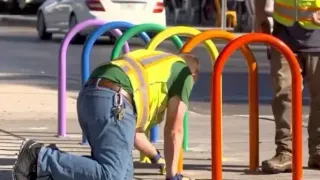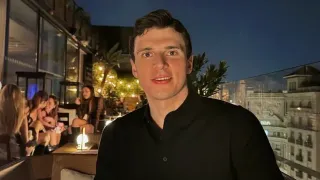October 9, 2017
LGBT History Month Celebrates 31 Icons
READ TIME: 1 MIN.
LGBT History Month celebrates the achievements of 31 lesbian, gay, bisexual or transgender Icons. Each day in October, a new LGBT Icon is featured with a video, bio, bibliography, downloadable images and other resources.
In 1994, Rodney Wilson, a Missouri high school teacher, believed a month should be dedicated to the celebration and teaching of gay and lesbian history, and gathered other teachers and community leaders. They selected October because public schools are in session and existing traditions, such as Coming Out Day (October 11), occur that month.
Gay and Lesbian History Month was endorsed by GLAAD, the Human Rights Campaign, the National Gay and Lesbian Task Force, the National Education Association and other national organizations. In 2006 Equality Forum assumed responsibility for providing content, promotion and resources for LGBT History Month.
The LGBT community is the only community worldwide that is not taught its history at home, in public schools or in religious institutions. LGBT History Month provides role models, builds community and makes the civil rights statement about our extraordinary national and international contributions.
Equality Forum is a national and international LGBT civil rights organization with an educational focus. Equality Forum coordinates LGBT History Month, produces documentary films, undertakes high-impact initiatives and presents the largest annual national and international LGBT civil rights summit. For more information, visit EqualityForum.com.
 Copyright HotSpots! Magazine. For more articles from HotSpots! visit
Copyright HotSpots! Magazine. For more articles from HotSpots! visit 





